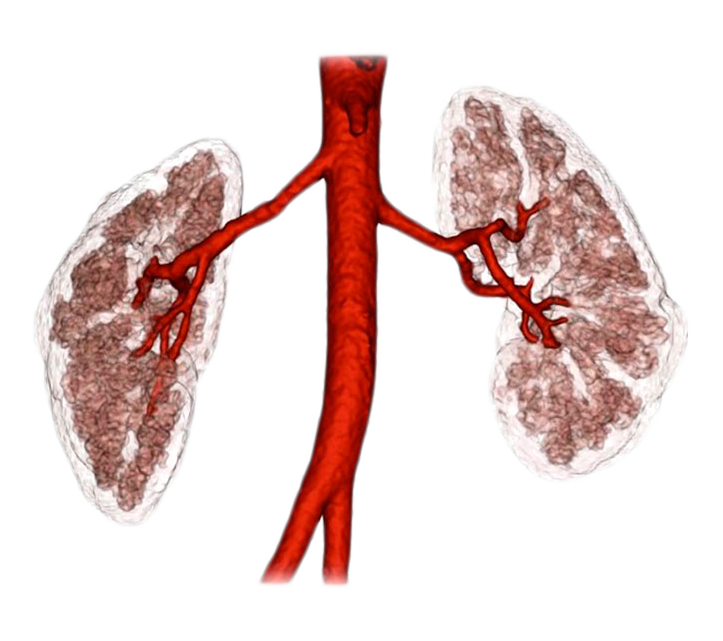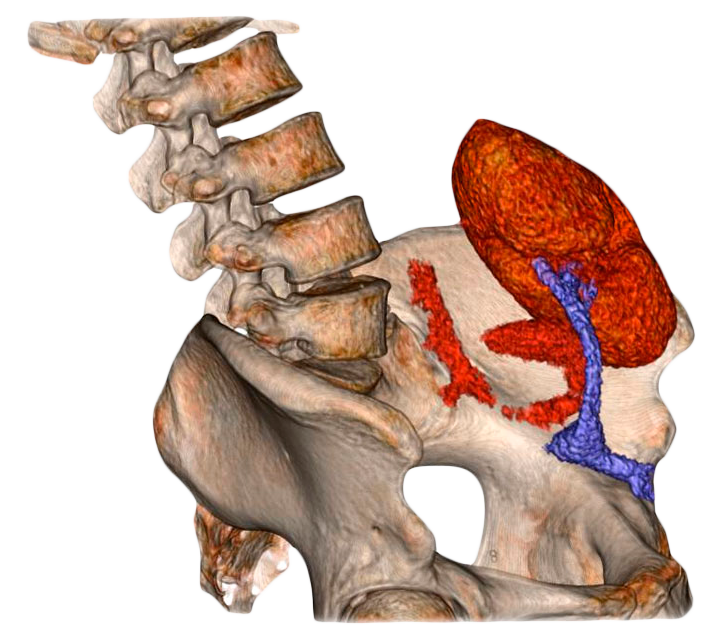Your Kidneys – Fast Facts
For Patients
Do you have a question about your kidney disease and/or kidney transplant?
Your kidneys filter more than 180 liters of blood per day but you only urinate less than 2 liters per day.
Healthy kidneys work 24 hours a day/7 days a week to clean the blood.
The total blood in your body circulates through the kidneys more than 10 times per hour.
The kidneys secrete a hormone that stimulates red blood cell production and prevents anemia.
Your bone’s health is highly dependent on the kidneys that covert vitamin D into its active form.
Table salt is a combination of two minerals – sodium and chloride.
The amount of water in your body is regulated by the kidney through the volume of urine excretion.
1 in 10 Americans has kidney disease and most don’t know about it.
Major risk factors for kidney disease are diabetes and high blood pressure.
Cardiovascular disease is the number one killer of people with CKD.
Symptoms of kidney disease are vague and include fatigue, nausea, vomiting and swelling.
If your kidneys fail, you have 2 options: dialysis or transplantation.
A kidney was the first solid organ transplanted in humans.
Kidney transplantation gives the best chance of improved survival in patients with kidney disease.
Even though we only need about 2-3 grams of salt per day (less than 1 teaspoon), most Americans ingest five times that amount.
Processed foods such as salted snacks, canned soups and frozen dinners have a high amount of salt added.
Each kidney is about the size of a hand fist and has a shape of a kidney bean.
Table salt is a combination of two minerals – sodium and chloride.
Lowering your salt intake may significantly reduce your blood pressure.
Each kidney contains in average 1 million tiny filters called glomeruli.
Eating too much salt or red meat may overload your kidneys.
Drinking more water may reduce your risk of kidney stones and protect your kidneys.
The kidneys together with the lungs are able to control the amount of acid in the body.
Diet rich in certain fruits and vegetables is able to correct acidosis in patients with kidney disease.
Physical activity may help your kidneys work better.
Kidney disease is silent for most of its course. You may not feel any symptoms until your kidneys loose 70% of their function.
A kidney transplant lasts in average 12-16 years.
The kidney secretes a hormone that helps regulate blood pressure.
NBA superstar Alonzo Mourning underwent a kidney transplant in 2003. He came back to win the 2006 NBA Championship with the Miami Heats.
Your kidney function is measured by a lab value called creatinine, ask your doctor about it and be familiar with the values.
Medications such as Motrin, Aleve, Naproxen, so called NSAIDS, can be very harmful to the kidneys, in the short and long-term.
Kidney disease affects 15 percent of the world’s population and it frequently goes undetected until most kidney function is gone. Therefore, the name the “silent killer”. In the USA, more than 30 million people have kidney disease. The most common causes of kidney disease are diabetes and hypertension, followed by auto-immune diseases.
The kidneys are responsible for filtering the blood, removing toxins, extra salt and water from the body. The kidneys are also responsible for producing a hormone that prevents anemia and for generating activated vitamin D that maintains bone’s health. A failing kidney may lead to various symptoms, including fatigue, nausea, reduced appetite, shortness of breath, confusion and swelling.
Kidney transplantation is considered the best treatment strategy for patients with failing kidneys since it is associated with improved survival and better quality of life when compared to dialysis. The new kidney may come from someone you know or a person who has died. After a transplant, patients must take anti-rejection medications for life, in order to help prevent the body from rejecting the new organ. Since these medicines inhibit the immune system, patients on anti-rejection medications have a higher risk of developing infections and certain cancers. Other side effects of these medicines include diabetes, cardiovascular disease and osteoporosis.
In order to keep your kidneys healthy:
- Reduce the salt in your diet (avoid canned foods, package meats and adding salt in the table). Salt preference is an acquired taste that can be unlearned. It takes about 6-8 weeks to get used to eating food with much lower quantities of salt, but once it’s done, it’s actually difficult to eat foods like potato chips because they taste way too salty! Select certain spices to help with transition. Same is true for sugar…
- Measure your blood pressure at least once a year. High blood pressure is a major cause of kidney disease and you might have it without knowing.
- Avoid taking NSAIDS regularly such as Ibuprofen/Motrin/Advil. Overtime, NSAIDS can significantly damage your kidneys. Acetaminophen/Tylenol is generally safer.
- Next time you see your physician, ask about your kidney function! A simple urine test checking for protein spilling and a blood test (serum creatinine) can help find out how your kidneys are doing.
Contact
In case you still have questions about your kidney disease and/or kidney transplant, I would be happy to provide you with a second opinion (link).
Support Our Work
There are a number of ways you can support our work to establish novel therapies to tame the immune system and prevent kidney transplant loss. Since the funding for kidney research and transplantation has been significantly reduced in the past 5 years, every donation counts. If you are interested in helping out, contact the MGH development office or contact Dr. Riella (link) directly.


